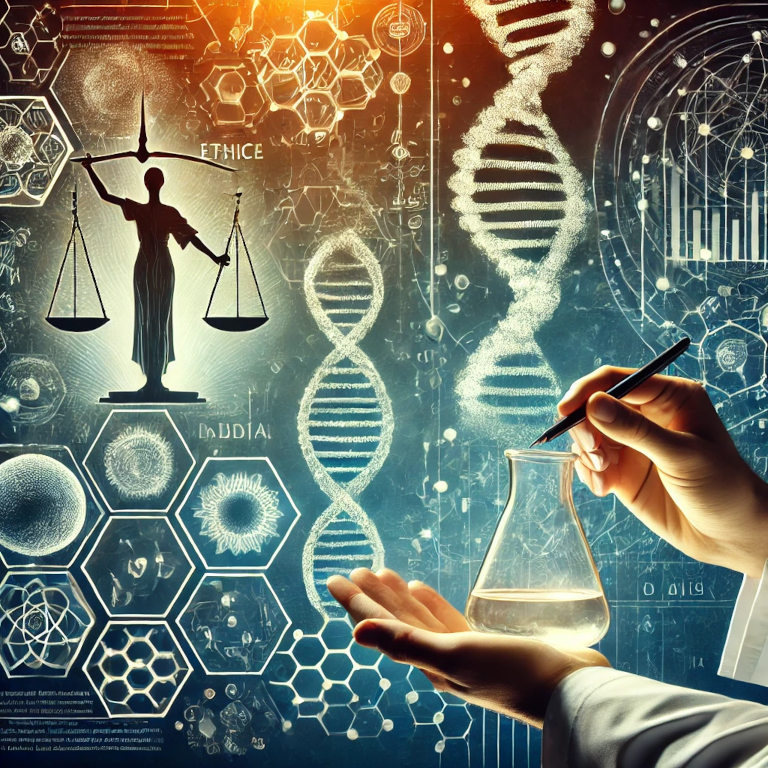The relationship between science and ethics is complex and multifaceted, encompassing the principles and moral considerations that guide scientific research and its applications. As an expert in Science and Education, this article will delve into the intricate dynamics of science and ethics, exploring their importance, key issues, and the role of ethical frameworks in scientific advancement.
Understanding Science and Ethics
Science is the systematic pursuit of knowledge through observation, experimentation, and analysis. Ethics, on the other hand, is the branch of philosophy that deals with moral principles and values governing human conduct. When combined, science and ethics address the responsibility of scientists to conduct research in ways that are ethical, just, and beneficial to society.
The Importance of Ethics in Science
1. Protecting Human and Animal Rights
Ethical guidelines in science ensure the protection of human and animal subjects involved in research. This includes obtaining informed consent, ensuring confidentiality, and minimizing harm. Ethical oversight bodies, such as Institutional Review Boards (IRBs) and Animal Care and Use Committees (IACUCs), play a crucial role in upholding these standards.
2. Ensuring Integrity and Trust
Ethical conduct is essential for maintaining the integrity of scientific research and fostering public trust. Issues such as data fabrication, plagiarism, and conflicts of interest can undermine the credibility of science. Adhering to ethical standards helps preserve the objectivity and reliability of scientific findings.
3. Promoting Social Responsibility
Science has the potential to significantly impact society, both positively and negatively. Ethical considerations guide scientists in making decisions that prioritize the well-being of society, prevent misuse of scientific knowledge, and address societal challenges such as health, environmental sustainability, and social justice.
Key Ethical Issues in Science
1. Informed Consent
Informed consent is a fundamental ethical requirement in human research. Participants must be fully informed about the purpose, procedures, risks, and benefits of the study, and their participation must be voluntary. This ensures respect for individual autonomy and protects participants from coercion and exploitation.
2. Privacy and Confidentiality
Maintaining the privacy and confidentiality of research participants is crucial. Researchers must implement measures to protect personal data and ensure that information is used solely for the intended research purposes. Breaches of confidentiality can lead to harm and loss of trust.
3. Animal Welfare
Ethical guidelines for animal research emphasize the humane treatment of animals, minimizing pain and distress, and using alternatives wherever possible. The 3Rs principle—Replacement, Reduction, and Refinement—guides researchers in conducting ethical animal studies.
4. Dual Use Research
Dual use research refers to scientific work that has the potential for both beneficial and harmful applications. For example, research on infectious diseases can lead to advancements in public health but also pose biosecurity risks if misused. Ethical considerations help balance these dual uses, ensuring that the benefits outweigh the risks.
Ethical Frameworks and Guidelines
Several ethical frameworks and guidelines have been established to guide scientific research:
1. The Belmont Report
The Belmont Report outlines ethical principles and guidelines for research involving human subjects. It emphasizes three core principles: respect for persons, beneficence, and justice.
- Respect for Persons: Recognizing the autonomy of individuals and protecting those with diminished autonomy.
- Beneficence: Maximizing benefits and minimizing harm.
- Justice: Ensuring fair distribution of the benefits and burdens of research.
2. The Nuremberg Code
The Nuremberg Code, developed in response to unethical medical experiments during World War II, sets forth principles for ethical human experimentation. Key principles include voluntary consent, avoidance of unnecessary suffering, and the requirement for scientifically qualified researchers.
3. The Declaration of Helsinki
The Declaration of Helsinki, adopted by the World Medical Association, provides ethical guidelines for medical research involving human subjects. It emphasizes the importance of scientific validity, informed consent, and the protection of vulnerable populations.
The Role of Education in Science and Ethics
Education plays a pivotal role in promoting ethical conduct in science. Integrating ethics into science education helps future scientists understand the moral implications of their work and prepares them to navigate complex ethical dilemmas. Key components of ethics education include:
- Ethics Courses: Offering dedicated courses on research ethics and bioethics as part of science curricula.
- Case Studies: Using real-world case studies to illustrate ethical challenges and stimulate critical thinking.
- Mentorship: Encouraging mentorship programs where experienced researchers guide students in ethical decision-making.
Summary
The intersection of science and ethics is vital for ensuring that scientific advancements are conducted responsibly and benefit society. Ethical guidelines and frameworks protect human and animal rights, maintain research integrity, and promote social responsibility. By integrating ethics into science education and adhering to established principles, the scientific community can uphold its commitment to ethical research and innovation.






